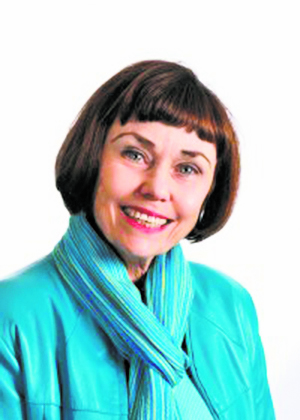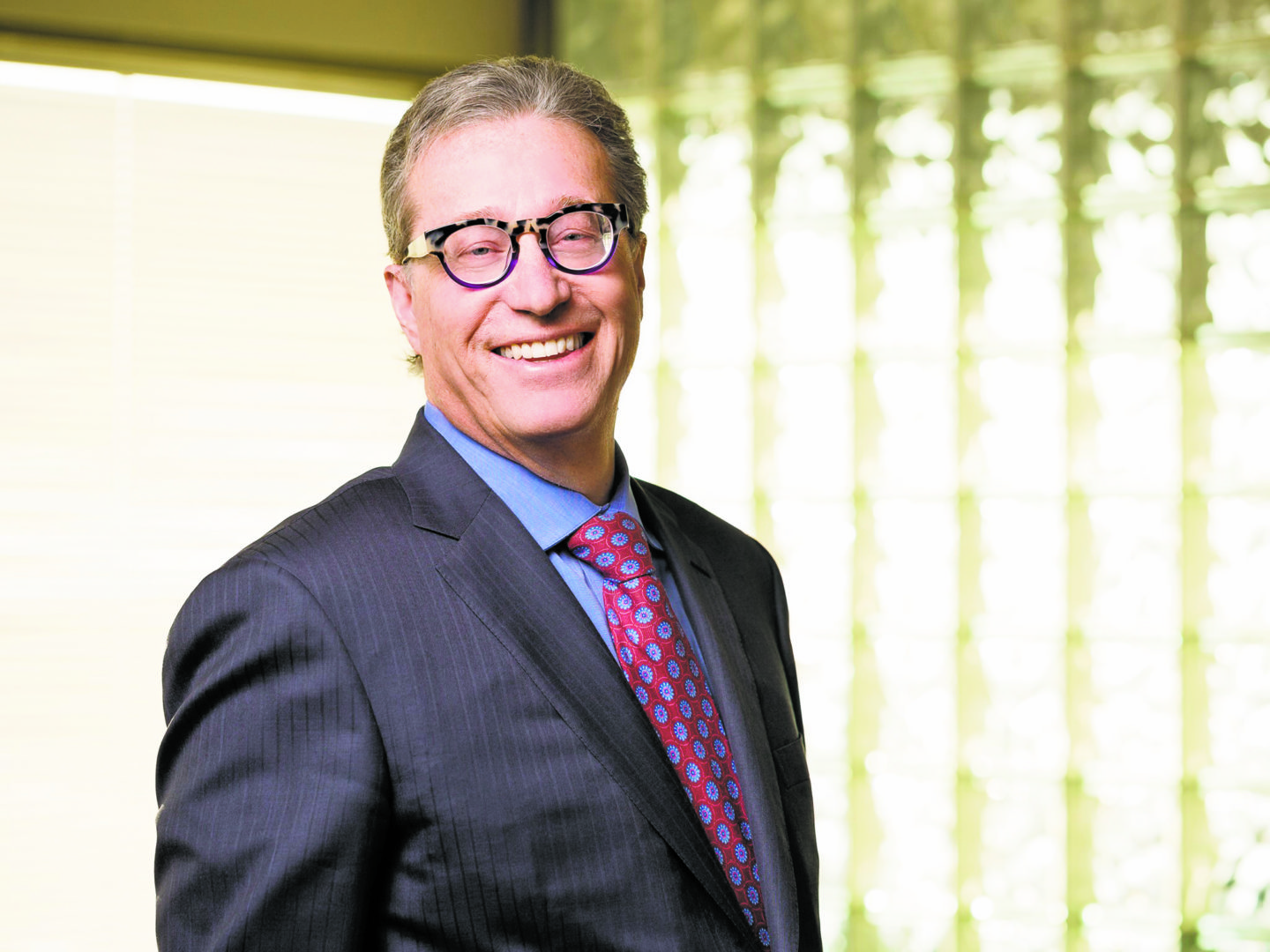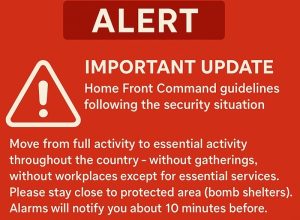The elephant in the room – is that what Israel is when it comes to Jews and Muslims who get together to engage in dialogue?
For decades, Jews have been meeting with Muslim, Arab and Palestinian Canadians in synagogues, mosques, private homes and community centres. The aim has been to break down barriers and get past stereotypes; to get to know the “other” as human beings. Typically, pot-luck dinners have been shared amid small talk about kids, jobs, vacations and other areas of common interest. It’s been an exercise in cordiality, building mutual respect and dissipating suspicion.
To be sure, Muslims and Jews have found common cause. Last February, hundreds of Jews across the country held hands and formed “rings of peace” around mosques and Islamic centres, in a show of support and solidarity, following the Quebec City mosque attack.

They have recognized that Jews and Muslims are the most frequently targeted groups for hatred and racism in Canada.
Over the years, members of both faiths have aligned on some issues, such as public funding for private schools, ritual slaughter and circumcision. They have studied each other’s religious texts and marked holy days together. There was some friction, however, when mainstream Jewish organizations refused to back federal motion M-103, which condemned Islamophobia.
But some might say that a reason for the success of Jewish-Muslim dialogues is that the issues that could scuttle it – the Israel-Palestine conflict and Zionism – aren’t raised. Often danced around or deliberately avoided, they’re the hot-button topics that can resemble a stink bomb at a dinner party.
Some believe that despite the tensions it has caused around the world, the Mideast conflict should not hinder efforts to improve relations between Jews and Muslims.

Others think that after years of get-to-know-you meetings, the time is ripe to start discussing the Mideast conflict. They dive into the subject headlong, saying that to truly understand the other side, the most contentious issue must be addressed honestly.
Jews and Muslims must not allow the Middle East conflict to lead to “acrimonious relations” in Canada. “That’s why dialogue is critical,” Ihsaan Gardee, executive director of the Ottawa-based National Council of Canadian Muslims (NCCM), told The CJN.
“Our communities can agree to disagree about conflicts in the Middle East, but not let those disagreements stand in the way of our shared interests as Canadian Muslims and Jews to promote mutual understanding, respect and inclusiveness here in Canada.”
He said that in some of his organization’s outreach efforts, there had been “misunderstood messages” between the NCCM and the Centre for Israel and Jewish Affairs, but he declined to elaborate, saying the issues have been “resolved” and that both groups “look forward to starting a dialogue based on mutual respect and trust.”
But there’s a difference between having an interfaith dialogue between Muslims and Jews, and a political dialogue about Middle East issues, said Raja Khouri, a veteran advocacy and human rights consultant.
In the former, the common ground is faith, and the two communities can find commonalities in scripture and values, Khouri noted. In the second, it’s human rights and international law.
The Canadian Arab Jewish Leadership Dialogue, which was founded in 2007 by Khouri and fellow human rights activist Karen Mock, now the chair of JSpace Canada, fell into the latter camp.
READ: I’M MUSLIM. CRITICISM OF POLITICAL ISLAM CAN’T BE CONFLATED WITH ISLAMOPHOBIA
“We wanted to learn about each other’s narrative and the reasons behind their beliefs,” said Khouri. “From the first meeting, we delved right into the heart of the Israeli-Palestinian conflict and its history. Sure, there was the social (aspect) and the growing friendship, but we never shied away from any topic related to the conflict, and that’s what strengthens the relationship and made the dialogue real.”
The Canadian Arab Jewish Leadership Dialogue lasted about five years, but its message continued through JSpace and the Canadian Arab Institute, which Khouri co-founded in 2012.
Khouri, who is not Muslim, conceded that he doesn’t profess to know how the interfaith process works. But “from what I understand,” he said, “the Israel-Palestine conflict was avoided in such dialogue,” which made the talks “incomplete and shallow.”
Socializing between Jews and Muslims has been the mandate of Shalom-Salaam Toronto, said Steve Holt, founder of the 10-year-old group that meets sporadically to do things such as go bowling, watch movies and have picnics.
Israel is not sidestepped, exactly. “It wasn’t that we avoided talking about it – people talked about whatever they liked – but we really didn’t know each other as people very much. This was a very special effort to try and socialize and get to know each other. In my mind, that is a necessary prelude and ingredient to real dialogue on the issues,” Holt said.
“I don’t think it’s in the elephant in the room,” he went on. “But it’s not really the mandate of the group.”
And when the subject has come up, he said that, “Most of the time, it stayed positive. Sometimes we had an individual who showed up (who was) looking for an argument and had an agenda. But those wouldn’t stay.”

Twenty years ago, raising the subject of the Arab-Israeli conflict at a meeting of the Canadian Association of Jews and Muslims (CAJM) would have been seen as divisive. Indeed, in 2003, CAJM co-founder Barbara Landau said the group considered the topic “the elephant in the room.”
Now, “it’s safer because a common bond has been built up. We speak out for democratic values and against hate. We’re trusted allies,” Landau said.
She pointed out that most Muslim members of the CAJM are not Palestinian, they’re from places like Africa, India and Pakistan. A subgroup of the CAJM, Together in Hope, which brought Jewish and Palestinian women together, fizzled after about five years – not over Israel, but because energies were siphoned off by the war in Syria.
After years of relationship building, CAJM has realized that its members “really do care about human rights, each other’s humanity and the right to self-determination, wherever that might be,” Landau said. Thus, bringing up Israel “is no longer a deal-breaker.”
Shari Golberg, a Toronto academic who’s been leading Jewish-Muslim study groups since 2003, puts it plainly: the Israel-Palestine issue rarely comes up, but “is always the elephant in the room” at her meetings.
It’s a touchy subject for Muslims and Jews, she concedes, but also among Jews.
“It’s not something I go out of my way to talk about with members of my own family and my own community,” she said. She’s had conversations about it with loved ones that have degenerated into yelling matches.
But, she added, that’s exactly the point: the relationships were strong enough to withstand the tension.
“We can agree to disagree on this topic, but it doesn’t mean that I don’t then later sit down to a meal with that person. It’s only when you have some relationship and have been able to build trust that you can have the conversation,” she said.
Talking to each other, finding common ground and “at least getting along here in Canada,” should be the goal of any dialogue between Muslims and Jews, said Alia Hogben, executive director of the Canadian Council of Muslim Women.
But a guaranteed deal-breaker in any encounter, she said, is the boycott, divestment and sanctions campaign against the Jewish state.
“As soon as anybody talks about that, you’re seen as being not just anti-Israel, but anti-Semitic,” Hogben said. “And that shuts you up.”
The Arab-Israeli conflict is a no-go subject at meetings of the Sisterhood of Salaam Shalom in Toronto.
READ: MUSLIM-JEWISH SISTERHOOD GROUP CANADIAN CHAPTER
“It does not come up in our meetings and the reason is because we actually have a policy that stipulates that we not deal with that particular issue until such time that sufficient trust and rapport have developed,” said Cynthia Levine-Rasky, a Queen’s University sociology professor who lives in Toronto and co-founded a local chapter of the U.S.-based women’s group last year.
“We’re here to build relationships across things that we have in common, which are really very plentiful, and there’s so much to do locally to build relationships and fight anti-Semitism and Islamophobia in Toronto that we needn’t go to that more controversial issue,” Levine-Rasky said.
One reason a conscious decision was made to dodge the topic was because not only does it divide Jews and Muslims, it also causes divisions between Jews, Levine-Rasky said.
“Our Jewish members are all over the map politically and there is no consensus on this issue, even among Jewish women who knew each other before joining,” she said. “We have everything from strong Zionists to anti-Zionists.”
Here, too, the group’s goal is to form meaningful interfaith relationships and stand up to hate directed at both communities.
Levine-Rasky said she heard that an interfaith group in Edmonton that was modelled on the Sisterhood of Salaam Shalom broke up after attempting to have this discussion “without adequate preparation.”
Howard Morry believes in preparation. In 2006, the Winnipeg lawyer co-founded Arab Jewish Dialogue and has written a dense, 10-page guide to Zionism for its members.
We never shied away from any topic related to the conflict, and that’s what strengthens the relationship
– Raja Khouri
It took years to develop, after Morry tried many different ways of explaining Zionism to Arab members, with little success. “The problem was that many Arab-Canadians are first-generation Canadians who grew up in the Middle East, where they were taught that Zionists were racists intent on taking over much of the Middle East,” he told The CJN. “It took a long, long time to get past that.”
The dialogue established ground rules for the “extremely emotional” topic that excluded extreme views: those who believe Israel shouldn’t exist, or that Israel should extend to the entire biblical region – and anyone who supports violence.
A “breakthrough” came when Morry explained Zionism as not just the story of the Jewish people reclaiming their ancient homeland, but as another in a long line of movements that established nation states – no different than those that led to the creation of Italy and Germany in the 19th century.
“In this telling, Israel is not a racist state at all,” Morry explained. “It’s just another nation state that answers to all its citizens, with a special role as the homeland for a people, many of whom live in a Diaspora around the world.”
Today, the 20 active members, evenly split between Arabs and Jews, are comfortable enough with one another to allow further discussions of some of the most difficult and emotional subjects, such as Jerusalem, Jewish settlements, anti-Semitism and Islamophobia, Morry said.
It took years of meeting regularly to get to where members trusted each other enough to broach those subjects, Morry said, and “at least five years to get past some of the biases and defences we all had, and to adjust the narratives we grew up with to allow some space for a counter-narrative.”
Today, the group’s website says it believes that “the ultimate solution to the Arab-Israeli conflict is a sovereign, contiguous, democratic Palestinian state living side by side with a sovereign, secure, democratic Jewish state.”






